Defined benefit vs defined contribution pensions
Learn about the key differences between these two types of pension scheme

Nearly all pension schemes are either a defined benefit (DB) pension or a defined contribution (DC) pension.
- Defined benefit pensions are salary-based, and pay out a guaranteed annual income in retirement, regardless of contributions.
- Defined contribution pensions provide you with a pot of money for retirement, based on how much you have contributed plus any investment growth.
Defined benefit pensions
A defined benefit pension provides a retirement income for life.
They are often called final salary pensions. However, increasingly DB pensions are based on your career average salary and the number of years you have worked for your employer.
While you are still required to make contributions to a defined benefit pension, you cannot run out of money in retirement. Your income is guaranteed, and it also rises with inflation.
Traditionally, DB pensions are highly regarded. However, few companies still offer defined benefit pensions as they are expensive for employers to run. Only a few large public sector employers tend to offer defined benefit pensions to new employees.
Defined contribution pensions
Defined contribution pensions are the most common type of workplace or personal pensions. A DC pension provides you with a finite amount of money which you can choose how to take when you retire.
The value of a DC pension will be dependent on personal and employer contributions, tax relief and investment growth.
When you turn 55 (57 from April 2028), you can take this money via drawdown, in lump sums or use it to buy an annuity.
Taxes on retirement income from defined benefit and defined contribution pensions
Taxes on your retirement income are the same whether you have a defined benefit or a defined contribution pension. The income you withdraw from either kind of pension is subject to income tax.
However, you also have the option to withdraw 25% of your pension tax-free, subject to a maximum of £268,275. With a DB pension you usually have to sacrifice some of your annual income in exchange.
Can I transfer my defined benefit pension to a defined contribution pension and vice versa?
Typically, it is not possible to transfer a defined contribution pension to a defined benefit scheme.
It is possible to transfer some DB pensions to a DC scheme, although this may not be a good idea. You should seek advice from a suitably qualified financial adviser before making any pension decisions.
The transfer value of a defined benefit pension is determined by its ‘cash equivalent transfer value’. If you have an ‘unfunded’ public sector DB pension, you cannot transfer to a DC scheme. This is because pensions for certain occupations – such as NHS workers and teachers – are paid for through taxation.
Reasons to transfer a defined benefit pension
Transferring a defined benefit pension comes with risks. However, there are some potential advantages of transferring to a DC scheme. For example:
- Flexible retirement options
A DB pension provides a set annual income. If you have a DC pension, you can vary how much you take and when via drawdown. - Earlier retirement
The retirement age for most DB schemes is 60 or higher. By transferring to a DC scheme, you could start to take retirement benefits age 55 (57 from April 2028). - Inheritance
The remaining money in a DC pension can be inherited by your choice of beneficiary. If you die under the age of 75, there is zero income tax to pay on your remaining pension when taken out as income. If it is taken as a lump sum it will be tax-free subject to your remaining Lump Sum and Death Benefit Allowance (LSDBA). Please note: from 6 April 2027, pensions and death benefits will become subject to inheritance tax. Find out more here. - Any lump sum death benefits paid from funds that were crystallised before 6 April 2024, will not be tested against the LSDBA, since they will have already been tested against the old Lifetime Allowance (LTA). The balance over your remaining allowance will be taxed at your beneficiary's marginal rate of income tax. Read more about Lump Sum Allowance.
With a DB pension, there is no pot of money to pass on and rules for inheritance vary depending on the scheme. Most schemes only provide an inheritance for spouses, civil partners or dependents.
Disadvantages of transferring a defined benefit pension
You lose safeguarded benefits which you cannot get back when you transfer a defined benefit pension. For this reason, it may not be in your best financial interest to transfer.
The main benefit you lose is a guaranteed income for life. This leaves you open to the risk of running out of money if you spend your DC pension.
Another disadvantage of transferring a DB pension is that it leaves you vulnerable to stock market crashes. DC pensions are invested so that they grow over time. If there is a stock market crash, the value of your pension could fall and take many years to recover.
As DB pensions rise with inflation rather than through investment, they are less risky. Due to these risks, you are required to seek financial advice before transferring a defined benefit pension which is worth more than £30,000. We still recommend seeking financial advice even if your pension is a lower value.